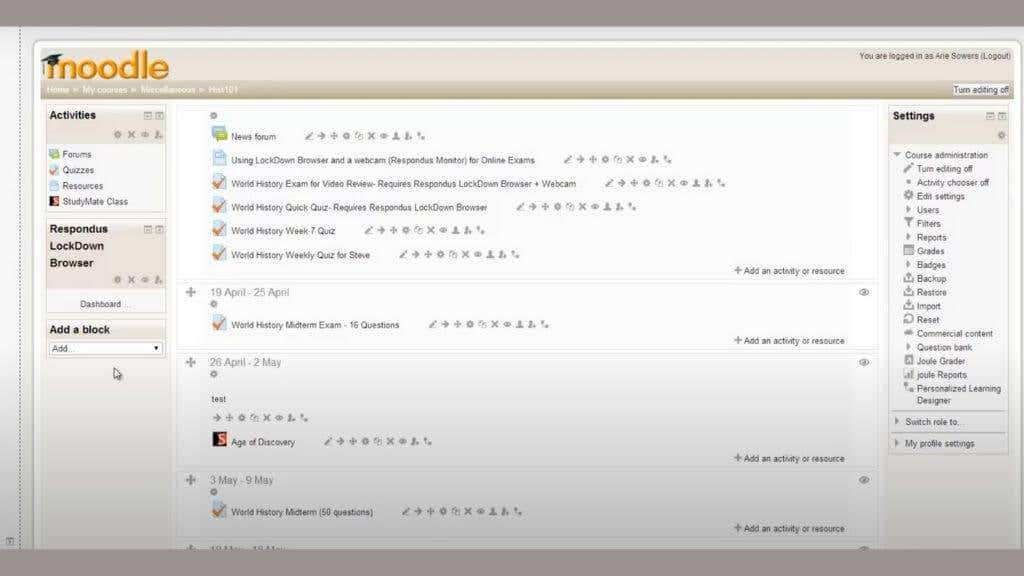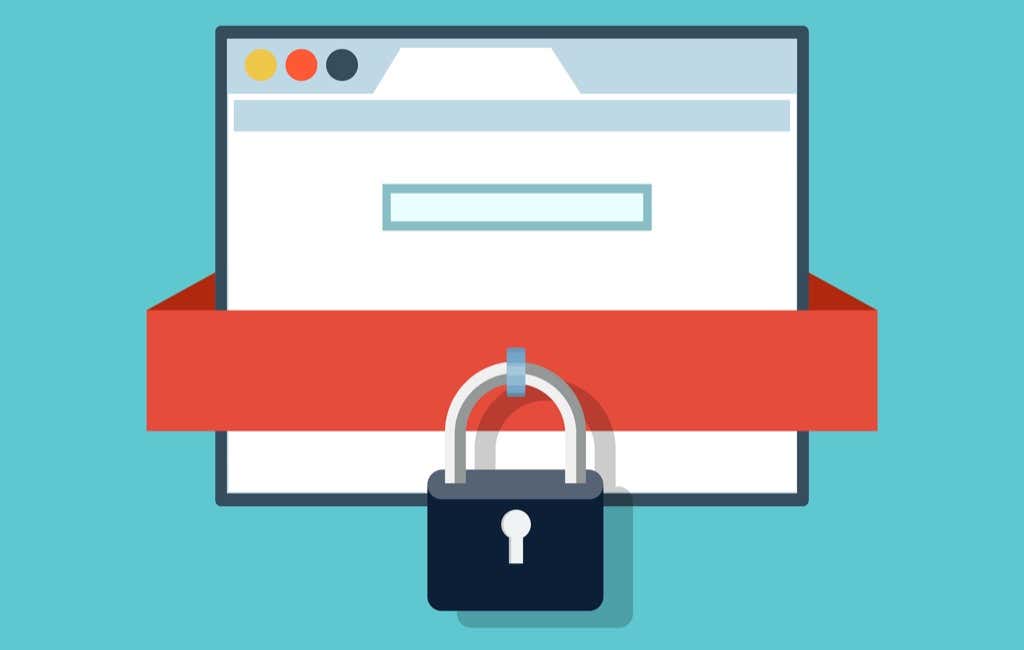An important part of preventing cheating
LockDown Browser is a proprietary web browser and software suite designed to ensure that online or remote exams are free from cheating. If you’re a student writing online exams, there’s a good chance you’ll be using the LockDown browser as part of your assessment.
What Is LockDown Browser?
LockDown Browser is a software application made by Respondus Inc. The company doesn’t sell it to individual users but licenses it to institutions that conduct remote exams.
LockDown Browser aims explicitly to prevent digital cheating. In other words, it locks the whole computer down to ensure that students can’t look at notes or use Google to find answers.
The browser can do nothing about another person in the room, another device, or indeed just plain old paper cheat sheets. It can only secure the computer it’s running on. This is why you’re most likely to encounter LockDown Browser in a formal exam center. In face-to-face exams, a human proctor ensures students don’t cheat in ways that LockDown Browser can’t stop.
That doesn’t mean LockDown Browser won’t work for students taking exams at home, just that it’s not enough by itself for remote exams. To cover other forms of cheating, remote proctoring is also needed. That’s not an intrinsic part of the LockDown browser, but we’ll briefly talk about proctoring later in this article.
Introduction to Respondus LockDown Browser for Students
Generic Use of “Lockdown Browser”
Like people refer to all vacuum cleaners as “Hoovers,” it has become common to refer to all exam security browsers as “lockdown browsers.” However, LockDown Browser is a trademark of Respondus Inc. This article deals specifically with the Respondus product, but you may be working with another brand of browser that does something similar.
The explanation in this article applies to all lockdown-type browsers and solutions in general; it’s just important to know that you should search for information using the specific name of the software you’ll be using for the most accurate answers.
Why Do We Need LockDown Browser?
Computer-based testing is becoming more popular every year, and there are many benefits universities and other institutions just can’t ignore. If an exam or test happens on a computer, it means that results can be finalized quickly. It requires much less administration and offers many financial benefits to everyone involved, both students and institutions.
It’s not unreasonable to expect that online, computer-based testing will eventually become the norm. So there’s a clear need to clamp down on exam fraud. After all, an institute’s qualifications mean nothing if you can’t trust the results of their examinations.
How Does LockDown Browser Work?
Since it’s a closed-source software solution, we don’t know exactly how the LockDown browser works under the hood. It’s better for security software such as this to be obscure regarding how it works. After all, the less anyone knows about the internal workings of the browser, the less likely anyone will be able to circumvent it.
What we can do is describe what LockDown Browser is like from a student’s point of view. When using LockDown Browser, the test is full-screen and can’t be minimized. Students can’t switch to other apps or do anything on the computer other than taking the assessment.
Many standard browser functions are also disabled. For example, you can’t right-click on anything. All browser controls except for Back, Forward, Refresh and Stop are disabled. No copying or pasting is allowed, and buttons like Print Screen also won’t work. Also, all printing is disabled.
It’s also not possible to open an assessment designed for use with the LockDown browser with any other browser. The assessment website will detect that you’re using the wrong browser and refuse to load.
Of course, everything you do or attempt to do during the assessment will be noted. So any attempts to cheat or use blocked functions can flag your test for closer scrutiny.
Can LockDown Browser Be Circumvented?
First, it’s important to say that there is no such thing as an unhackable, unbreakable security system. So it’s not a question of whether LockDown can be circumvented, but rather whether the effort needed to do so is worth it. It may simply be easier to study and pass the test than try an alleged workaround you’ve found somewhere and have no way of testing until the day of the assessment.
Apart from dubious exploits from third parties, if you’re smart enough to come up with a way to hack the LockDown browser by yourself, you’re probably also smart enough to pass the test in a legitimate fashion.
We obviously do not support cheating in any form, but even if you have no moral issue with it, trying to work around the LockDown browser carries serious risks and a low chance of success. Just don’t do it.
LockDown Browser Privacy Concerns
Usually, the LockDown browser will run on a computer that belongs to the institution you’re studying or to a testing center. However, in the age of pandemic-driven remote work and study, you may be asked to install the software on your personal computer.
To work, the LockDown browser has to have administrator privileges and access to the highest level of security access on your computer. So, we advise that you read Respondus’ Privacy Policy closely. Even then, you may want to only use it on a computer that does not have any sensitive or private information on it.
LockDown Browser With Online Proctoring
As mentioned earlier, a product like LockDown Browser is only a part of the solution to preventing exam fraud. You also need a proctor to observe the exam to make sure everyone sticks to the rules. In a computer lab, you can simply have people do the rounds and keep a literal eye on proceedings. However, if you’re doing an assessment remotely, online proctoring becomes necessary.
There are two approaches to this. First, a human can remotely monitor the exam using a webcam and microphone connected to the student’s computer. Alternatively, you can use software to detect suspected cheating automatically. The video and audio are then sent for review by humans to confirm.
In the specific case of Respondus, they sell a service known as Respondus Monitor. They claim that it’s fully automated and that the instructor can review the flagged footage and audio after the test is over. This aspect of remote exams makes it very difficult to cheat and should hamper any potential cheaters.










